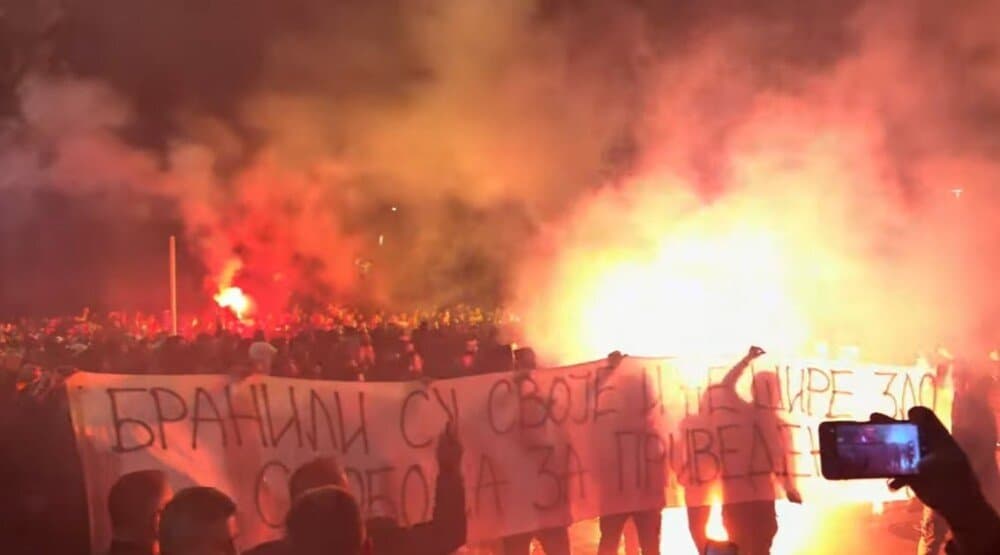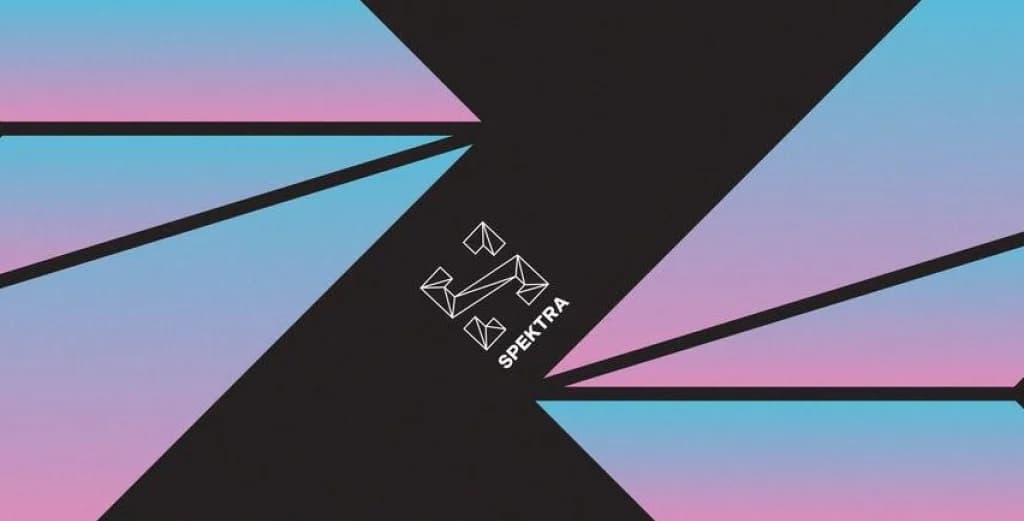A group of NGOs and civil activists are deeply concerned about the development of events in Podgorica and beyond in the last ten days and express the strongest condemnation of any form of violence, discrimination and spreading hatred, regardless of the national, ethnic or religious affiliation of the victims or perpetrators.
As they stated, the incidents that happened from October 25, 2025, but also those from before – including physical attacks, inciting national and religious intolerance, demolishing business premises owned by Turkish citizens, and burning cars – represent not only a violation of the law, but also, they point out, a direct attack on basic human rights, dignity and social peace in our country.
“We condemn all criminal acts committed in this series of incidents, without any exception or relativization,” they added.
As they note, what should be the norm and not the desired goal in a country striving for EU membership – that no one should be beyond the reach of the law.
“These incidents are not just individual misdemeanors, but crimes motivated by hatred on a national basis, which turned into the persecution of Turkish citizens, which makes them particularly dangerous and requires stricter application of the Criminal Code of Montenegro, which provides for tougher penalties for acts committed for reasons of national, racial or religious intolerance,” they said.
They especially point out that the demolition of business premises and the destruction of property of Turkish citizens are classic examples of hate crimes, which, they add, not only violate the right to property and security, but also encourage the collective stigmatization of the entire nation.
“These incidents are not isolated – they are accompanied by hate speech on social networks and in public space, including the chanting of slogans calling for the murder of Turkish citizens, which is a direct incitement of national and religious hatred and must be treated as a criminal offense,” the statement reads.
As they stated, they are particularly concerned about the organized protest of citizens in Podgorica, which was secured by the police, and which resulted in a very threatening atmosphere in neighborhoods with a large number of Turkish residents.
Footage and reports show that a large number of masked men roamed the streets, creating a sense of danger and fear among Turkish citizens.
“This is not just a spontaneous gathering – it is an organized act that, with police protection, sent a message of intolerance and encouraged further incidents,” they point out.
They demand immediate and equal prosecution of all participants in these incidents.
“The State Prosecutor’s Office and the police must act without delay: identify, arrest and prosecute all perpetrators of violence. Equally, all those who incited hatred – whether through social networks, public gatherings or the media – must be prosecuted in accordance with the Criminal Code for inciting national, racial and religious hatred, which is punishable by imprisonment from six months to ten years, and that all those who committed other crimes motivated by hatred, such as the destruction of other people’s property, they should be punished more strictly in accordance with Article 42a of the Criminal Code of Montenegro. We emphasize that any delay or selectivity in the full application of the law will only deepen divisions and encourage new cycles of violence”, they stated.
According to them, as fighters for human rights, they remind that Montenegro is not a country of hatred and violence – it is a member of international agreements on the protection of human rights, including the European Convention on Human Rights, and must act in accordance with those obligations.
“Collective guilt does not exist: individuals are responsible for their actions, not entire nations. Spreading hatred towards Turkish citizens – who legally work, live and contribute to our economy – is not the answer to individual incidents, but the path to chaos and isolation of our country. We call on everyone – citizens, politicians, media and institutions to refrain from hate speech and to promote dialogue and tolerance. Only through the rule of law, equality before the law and protection of minorities can we preserve Montenegro as a multi-ethnic and inclusive Montenegro. society”, they concluded.
The announcement is signed by:
- Danijel Kalezić, ERA – Alliance for Equal Rights
- Milica Kovačević, CDT – Center for Democratic Transition
- Tea Gorjanc Prelevic, Human Rights Action
- Daliborka Uljarević, Center for Civic Education
- Jovan Joli Ulićević, Association Spectra
- Zlatko Vujović, Center for Monitoring and Research – CeMI
- Staša Baštrica, Queer Montenegro
- Ivana Vojvodic, Juventas
- Biljana Zeković, SOS telephone for women and children victims of violence – Podgorica
- Ervina Dabidžinović, ANIMA
- Milka Tadic Mijovic, CIN-CG
- Aida Perović, NGO Prima
- Vanja Tsicmil, Zero Waste MNE
- Marica Stijepović, NGO Myrtle
- Ranko Dacić, Montenegrin Harm Reduction Network, Link
- Ana Dedivanović, Association of LBTQ women “Stana”
- Maja Raičević, Center for Women’s Rights
- Aida Petrović, Montenegrin Women’s Lobby
- Marina Vujacic, Association of Disabled Youth
- Olivera Nikolić, Media Institute of Montenegro
- Budislavka Mira Saveljić, Safe Women’s House
- Dr. Milena Popović Samardžić, NGO Ipso facto
- Kristina Mihailović, Parents Association
- Zorana Marković, CRNVO
- Zenepa Lika, MSJA
- Velija Murić, Montenegrin Committee of Lawyers for the Protection of Human Rights
- Nevenka Vuksanović, CEDEM
- Darko Ivanovic – NGO 35mm
- Aleksandra Radoman, Center for Training and Education
- Adnan Čirgić, Montenegrin PEN Center
- Aleksandar Radoman, Faculty of Montenegrin Language and Literature
- Sabina Talović, Bona Fide Pljevlja
- Lidija Guberinić, Bijelo Polje Municipal Multiple Sclerosis Association
- Philip Kuzman, The Anti-Fascists Cetinje
- Almedina Dodić, Eduko Plus
- Maja Bogojević, Agora Femina
- Dina Bajramspahić, civic activist
- Jovana Marović, civil activist
- Dr. Tea Dakić, Psychiatrist and human rights activist
- Srđan Vukčević, economist and business consultant
- Paula Petričević, civil activist
- Goran Đurović, civil activist
- Tamara Milash, civil activist
- Dragana Tripković, playwright
- Balša Dragojević, activist
- Tijana Dragojević, activist
- Jelena Čolaković, activist
- Aleksandra Vujacic, activist
- Marija Radović, activist
- Mary Mijović, an activist
- Marija Ružić Stajović, activist
- Andrijana Radulović, activist
- Stefan Đukanović, activist
- Jovan Bojović, activist
- Marija Jovanović, activist
- Milva Milić, activist
- Marko Vukčević, activist
- Iskra Đurišić, activist
- Daniela Nikić, activist
- Aleksandra Kraljević, activist
- Aleksa Radonjić, activist
- Itana Kovačević, psychologist
- Marko Dragićević, activist
- Ana Jaredić, activist
- Jelena Nenezić, actress
- Jelena Martinović, journalist and writer
- Maida Burdzović, PhD, psychiatrist
- Dr. Slaven Jovanović, specialist in psychiatry
- Dr. Zlata Kovačević, internist-endocrinologist
- Ivana Stanić, painter
- Adriana Gvozdenovic, artist
- Julija Milačić Petrović Njegoš, actress
- Dr. Sci Tijana Todorovic, visual artist
- Radoje Cerovic, psychologist and business consultant
- Dr. Boris Ćorić, psychiatrist
- Dr. Ljiljana Radulović, neurologist
- Kristina Gvozdenović, PhD in political science
- Elvis Berisha, civil activist
- Dr. Sandra Vujović, neurologist
- Vesna Rajković Nenadić, journalist
- Mila Radulović, journalist
- Sanja Jovanović, cinematographer producer
- Tanja Šuković, journalist
- Ana Milović Jasikovac, youth worker
- Martina Markolović, activist
- Elizabeta Mrnjačević, activist
- Tanja Pavićević, journalist
- Amra Bajrović, activist
- Bojana Malović, activist
- Dr. Boban Batrićević, university professor and civil activist
- Milena Bešić, as a civil activist
- Sanja Orlandić, philologist
- Jelena Nikolić, graduate mathematician
- Emir Pilav, MA – political scientist and civil activist
- Nikoleta Đukanović, civil activist
- Veselin Radulović, lawyer
- Anđela Milović, journalist
- Boyan Switzerland, a citizen activist
- Miloš Vukanović, historian
- Olivera Komar, political scientist
- Marija Perović, director
- Violeta Senić, civil activist
- Žarko Begović, civil activist
- Jasna Tatar Anđelić, professor at UCG
- Žarko Božović, citizen activist
- Mila Lekić Pejović, civil activist
Source: CdM





